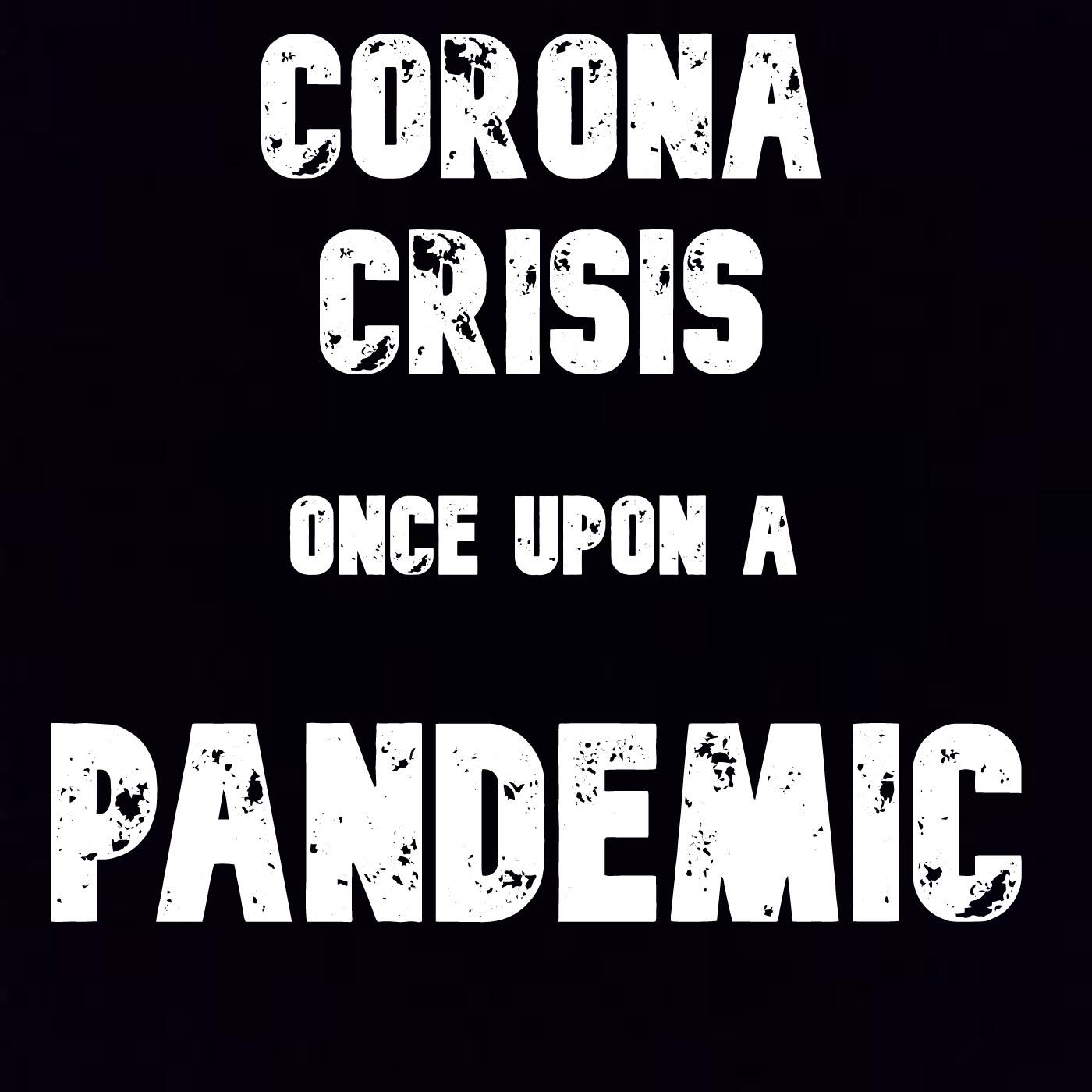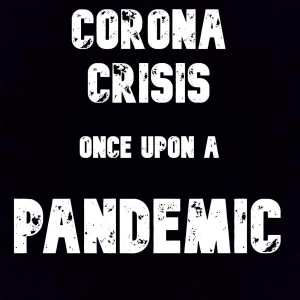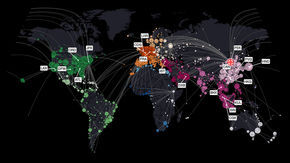
'Corona Crisis: Once Upon a Pandemic' is a podcast that explores the watershed event in world history from an array of perspectives. Together with expert guests that are engaged with managing and making sense of the global coronavirus outbreak, podcast hosts Eric Paglia and Marc van den Bossche discuss different dimensions of the pandemic, with a focus on crisis management at the national and international levels, and the long term societal and geopolitical implications of the COVID-19 contagion.
'Corona Crisis: Once Upon a Pandemic' is a podcast that explores the watershed event in world history from an array of perspectives. Together with expert guests that are engaged with managing and making sense of the global coronavirus outbreak, podcast hosts Eric Paglia and Marc van den Bossche discuss different dimensions of the pandemic, with a focus on crisis management at the national and international levels, and the long term societal and geopolitical implications of the COVID-19 contagion.
Episodes

Friday May 22, 2020
Hunting herd immunity in Sweden with Prof. Tom Britton
Friday May 22, 2020
Friday May 22, 2020
The proportion of populations that have contracted COVID-19 and developed antibodies against the coronavirus is one of the critical questions at this stage of the crisis. Some recent test results suggest that in many countries, including Sweden, far fewer people than expected have been exposed to the virus, and that hopes of reaching herd immunity are perhaps premature. One of the world’s leading modelers of epidemics, Prof. Tom Britton from Stockholm University, joins the podcast to discuss his latest research on herd immunity in the context of COVID-19 and other data-related dimensions of the pandemic.

Wednesday May 13, 2020
Cities, industrial agriculture and ecological pathways to pandemics
Wednesday May 13, 2020
Wednesday May 13, 2020
The growth of cities and the expansion of industrial agriculture have greatly increased the density of human and animal populations, heightening the risk of pathogens being exchanged within and between species, and creating new pathways for pandemic outbreaks. On this episode, Prof. Kate Brown from the Massachusetts Institute of Technology provides an ecological and food production perspective on infectious diseases, and shares insights from her research on the Chernobyl nuclear disaster that, like the coronavirus crisis, unleashed an invisible contamination upon human bodies and unprepared societies.

Saturday May 09, 2020
COVID-19 and the EU response: Existential Crisis for the European Union?
Saturday May 09, 2020
Saturday May 09, 2020
The less than unified response to the coronavirus crisis has greatly exacerbated existing tensions in the European Union, once again raising questions about the legitimacy, solidarity and continued utility of the EU. Crisis management and EU expert Mark Rhinard, professor of international relations at Stockholm University and the Swedish Institute of International Affairs, analyzes the EU response to COVID-19 and considers some of the longer term and wider geopolitical implications of the pandemic for European unity and the role of the EU in an increasingly uncertain world.

Friday May 01, 2020
Friday May 01, 2020
Medical experts and government science advisors have become the rock stars of the COVID-19 crisis, often eclipsing political leaders in prominence as countries struggle to devise strategies to contain the coronavirus. But to what extent can and should expert advice inform decision making when factual evidence in a fluid situation is scarce, and scientific understanding of a novel virus is far from comprehensive? Prof. Arjen Boin, a leading crisis management and public administration scholar, joins the podcast to discuss the dynamics of decision making in the particularly complex case of COVID-19, as well as how policymakers are attempting to learn from the more or less effective efforts of other countries in combating the pandemic.

Monday Apr 27, 2020
Monday Apr 27, 2020
Without implementing draconian restrictions, Iceland’s proactive response—entailing collaboration between government authorities, medical professionals and a Reykjavik-based biopharmaceutical company, as well as a high level of public engagement—has proven remarkably effective in containing the coronavirus outbreak, arguably the best of any western country. There is also hope that research and data at the population level in Iceland will over time bring important epidemiological insights on the virus. One of the country’s top medical experts, Prof. Magnús Gottfreðsson, explains on this episode how Iceland has so far managed to contain COVID-19 while working to generate data and knowledge for the global effort against the coronavirus.

Friday Apr 24, 2020
Friday Apr 24, 2020
As New York became the epicenter of the COVID-19 onslaught, Governor Andrew Cuomo emerged as the embodiment of America’s efforts to manage a crisis that has far eclipsed 9/11 in terms of its fatal impact on the city and the country. Prof. Eric Stern, a crisis management expert from the University at Albany, joins the podcast to provide analysis of the pandemic’s impact on New York, the official response by city, state and federal authorities, and Cuomo’s high-profile crisis leadership.

Monday Apr 20, 2020
Sweden and Italy: Analyzing extremes of COVID-19 crisis
Monday Apr 20, 2020
Monday Apr 20, 2020
Italy was the initial ground zero of the COVID-19 outbreak in Europe, while Sweden has emerged as an international outlier in terms of its far less restrictive handling of the coronavirus crisis. Prof. Giuliano Di Baldassarre, director of the Centre for Natural Hazard and Disaster Science, is an Italian living in Sweden who on this episode draws on his extensive research on natural hazards and data modeling, as well as his lived experience from the two countries, to assess the situation and analyze the respective responses to the crisis.

Monday Apr 13, 2020
Monday Apr 13, 2020
India implemented on four hours notice the largest lockdown in human history, leading to confusion and dislocation on a colossal scale. On this episode, Ashok Swain, professor of peace and conflict research, explains the Indian response to the pandemic and its potential consequences, as well as how the coronavirus crisis could affect the international peacebuilding agenda and the geopolitics of Asia.

Friday Apr 10, 2020
Friday Apr 10, 2020
Viktor Galaz, deputy director of the Stockholm Resilience Centre, joins the podcast to discuss how infectious disease outbreaks that cascade across national boundaries can, in a complex and interconnected world, emerge from degraded environments at local levels. He also explains how thinking in terms of resilience can improve pandemic preparedness, and how IT and AI can provide early warning against emerging outbreaks and enable better government response, as seen in some cases during the COVID-19 coronavirus crisis.

Sunday Apr 05, 2020
Foreseeable catastrophe: Failures of the coronavirus response so far
Sunday Apr 05, 2020
Sunday Apr 05, 2020
Why were countries such as the United States caught off guard and slow to forcefully respond to COVID-19 at an earlier stage of the outbreak? On this episode, political scientist Charles Parker draws on lessons from previous mega disasters to explain some of the most significant failures in the coronavirus crisis response so far, and how decision makers can learn and adapt to better manage the pandemic.
